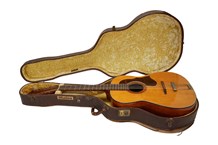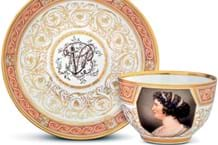The vendor believed the spinning jenny to be the work of a Napoleonic Prisoner of War and certainly it had the intricate detail of such pieces.
However, French PoW pieces which make big money tend to be sailing ships and while the spinning jenny was in many ways as important to England’s prosperity as its Navy, it does lack the glamour.
Auctioneer Christopher Hampton had seen the 6in (16cm) high automaton many times during valuation visits to the vendor’s North Devon home. As a Napoleonic PoW piece it would have been made between 1799 and 1815, at least 35 years after James Hargreaves invented the spinning jenny,
but the model could have been a commissioned piece.
It was in working order although Mr Hampton said “it could have done with a bit of WD40” and it attracted interest from trade and private buyers from across the country, as well as a band of local maritime collectors.
Estimated at £500-600 it sold on the phone at £820 which is either a reasonable sum for an oddity or a very astute bid for a piece which may reward more research.
In price terms, it was dwarfed by more familiar pieces at the Exeter sale, where an early 19th century mahogany bookcase took £4500 and a 17th century Delft date bowl brought £3000.
A spin-off from the PoW industry
NOT the priciest offering at Exeter auctioneers Hampton & Littlewood (15% buyer’s premium) on January 30, but undoubtedly the most interesting was this early 19th century automaton right, made from bone.




